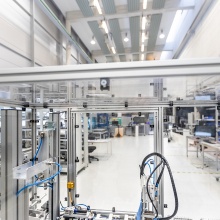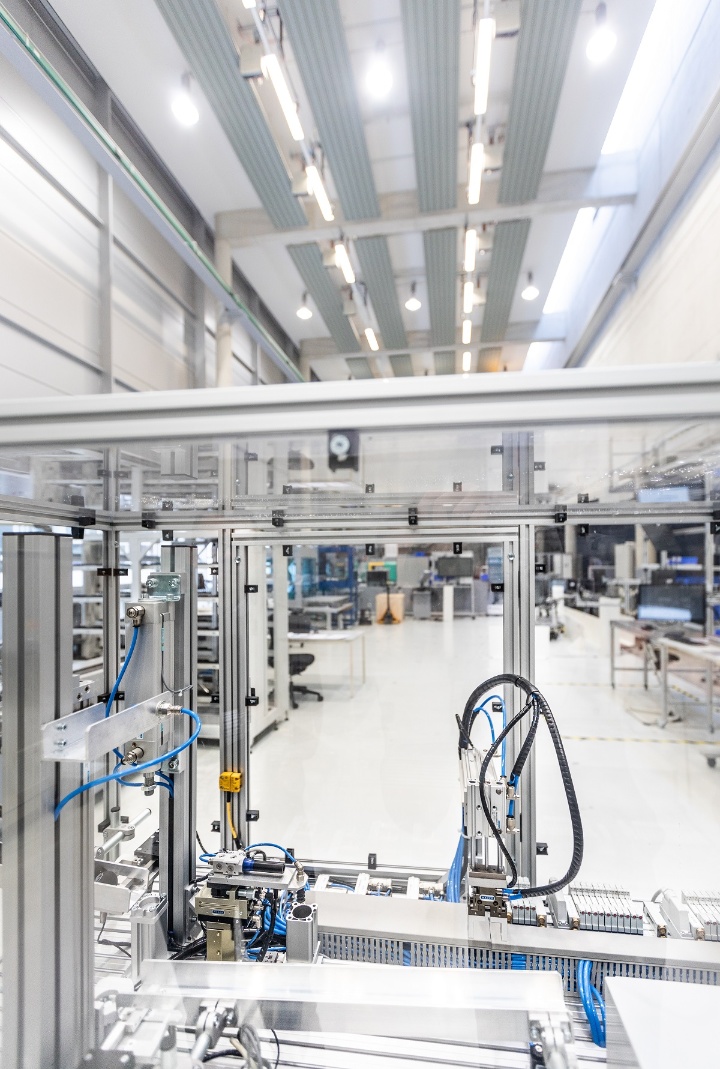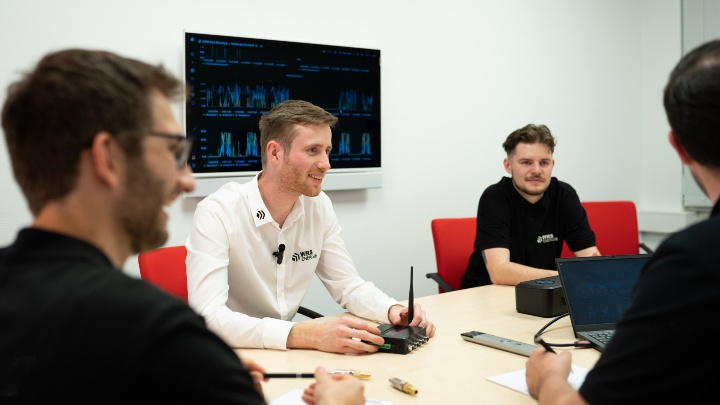Compressed air is the most expensive energy source in companies. The good news: There is great potential for energy savings of 30% on average, as losses due to leakage in compressed-air systems are very common. A lot of compressed air is lost due to porous hoses, damaged couplings, and leaking seals.
Detecting and assessing leakages
Today, leakage detection works via localization using ultrasound devices or thermal imaging cameras. While this method has proved to be helpful for exact localization, major uncertainties arise in the assessment of the leakages. It is difficult to plausibly assess how successful the elimination of the leaks has been.
This is where a newly developed algorithm for leakage detection comes in. It digitally collects sensor data and makes them available to the companies via a link with AI algorithms. This allows a data-based analysis from which concrete recommendations for optimization can be derived. The compressed-air system is constantly analyzed to make sure that measures really work.
“We received very positive feedback from our customers,” says Lennard Schwidurski, the founder and managing director of WRS Energie. The WRS Energie start-up specializes in helping industrial companies to operate their compressed-air system with maximum efficiency. The large number of customers, each with different behavior patterns, means that anomalies and leaks can be reliably detected. The result is expressed in the leakage index. The index is monitored through constant analysis and is suitable for energy management in accordance with ISO 50001.
Compensating for measurement errors intelligently
Temporary data loss makes it difficult to analyze measurement data. The gaps make the use of artificial intelligence virtually impossible. However, these gaps are closed by the program developed in the project.
Temporary data loss can persist over a longer period of time, as there are usually no alarms set for it. Based on the past data, the newly developed method compensates for the missing data in statistical analyses in the data matrix.
The more past data the algorithm can use, the better are the results. After complete validation, the algorithms are integrated into the AnalzyAir® of WRS Energie, so that all customers can benefit from them by the end of 2024 at the latest.
“In the meantime, we are planning other features and are constantly developing the algorithms further,” says project manager Christian Wolf from the EEP at the University of Stuttgart.
| Contact | Expert contact: MSc. Christian Schneider, Institute for Energy Efficiency in Production (EEP) Press contact: Dr. Birgit Spaeth, Institute for Energy Efficiency in Production (EEP) |
|---|




